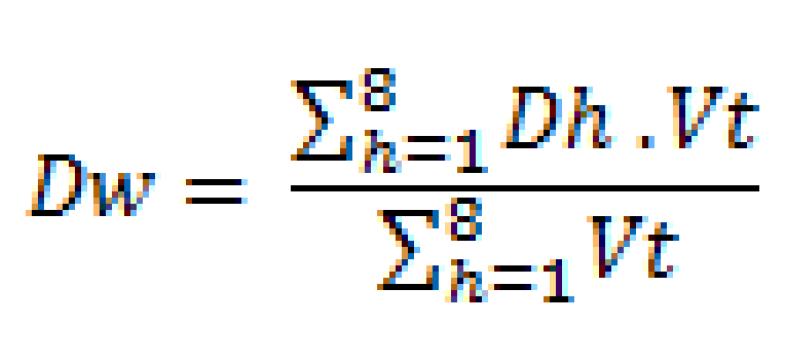The greatest increase in growth of the plantation may change the physical properties of wood, and therefore may decrease the wood quality for industry. The current paper aimed to evaluate the effect of thinning treatments on growth and wood density of Pinus taeda planted in Misiones, Argentina (25º 59' S - 54º24' W). The plantation was established in 1985 with 1644 plants per hectare and three thinning intensity treatments were used (0%, 33% and 66% of the remaining basal area), under design randomized complete blocks (3 blocks). The harvest was performed at rotation age (20 years-old), on parcels with 711(0%), 364 (33%) and 122 (66%) plants per hectare. Forty-five trees were selected to determine the basic wood density (15 trees per treatments, 2700 samples). Thinning significantly affected the growth of the plantation, with average diameters of 45.9 cm, 34.8cm and 28.7 cm in 0%, 33% and 66% thinning treatments, respectively. The volume of the plantation was higher in the unthinned treatment, while 66 % thinning produced a deficiently place occupation, generating greater amounts of large wood. For simple and weighted wood density the differences between thinning treatments were not significant. The weighted density values were 0.406, 0.418 and 0.420 g.cm-3 for 0%, 33% and 66% thinning treatments, respectively. The correlation analysis carried out between the diameter and density was not significant. The intensity of thinning can be managed to maximize the production without any modification in the wood quality for industry.
plantations; silvicultural treatments; wood properties; pine






